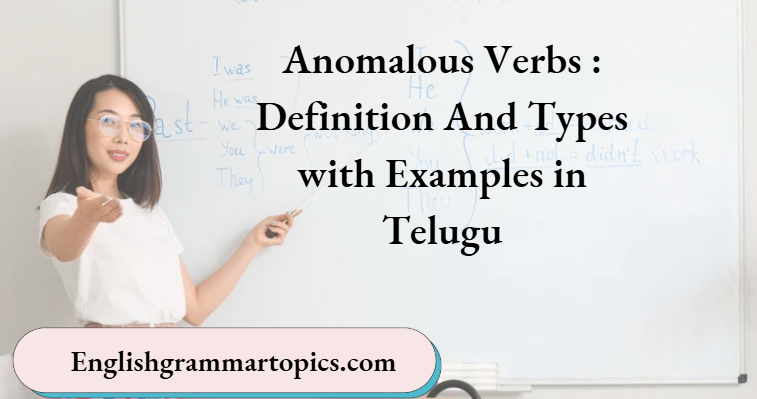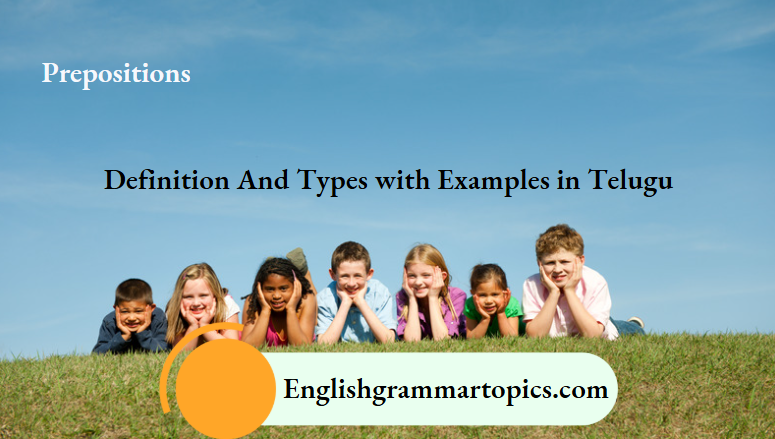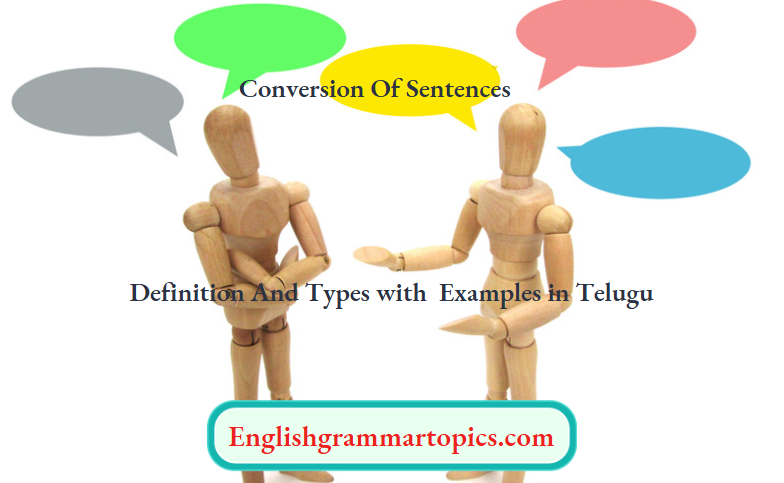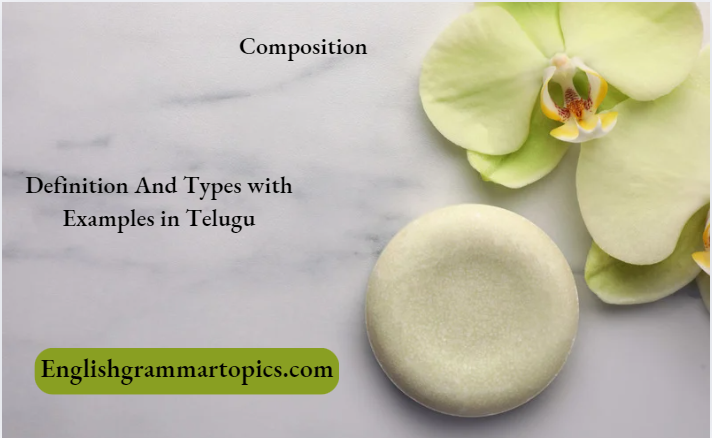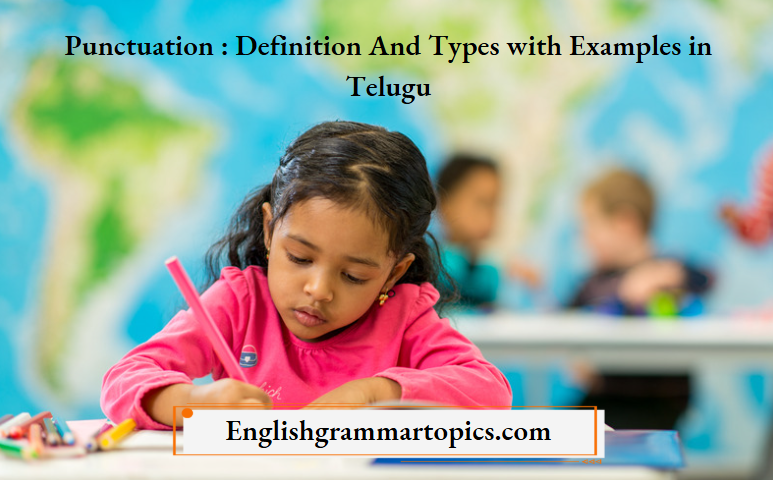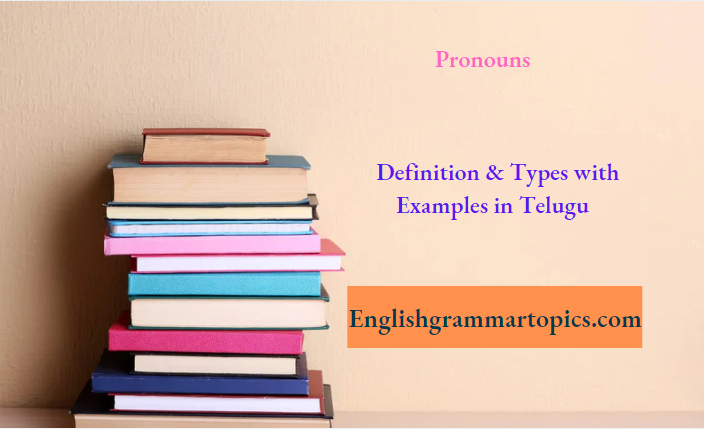అధ్యాయము 43
The Appreciation Of Poetry
Poetry అంటే ఏమిటి? Poetry అంటే ఏమిటి అనే విషయంపై చాలా మంది చాలా రాశారు. కాని ఎవరూ కూడా దానిని పూర్తిగా వివరించలేకపొయ్యారు. Poetry seems to elude all attempts to describe it. కాని ఏదో కొంత మనం poetry ని గురించి తెలుసుకోవాలి. దాని వలన కనీసం కొంతలో కొంత మనకు ఆ subject ను గురించి తెలుస్తుంది. దాని ప్రధానమైన లక్షణాలు అవగాహన లోనికి వస్తాయి.
Poetry కి verse కి మధ్యనున్న సంబంధాలు ముందు చర్చిద్దాం. Poetry యొక్క form ను verse అంటారు. రచయితలు verse form లో poetry ని రాస్తారు. కొన్ని poetry కాకుండానే verses ఉంటాయి. verses poetry యొక్క body గా ఉంటవి.
Verse ని ఒక ప్రత్యేక బాణీలో రాస్తారు. Verse formation కు prose formation కు చాలా తేడా ఉంటుంది. Verse చెవి మాత్రమే. కన్ను కాదు. Verse ను చదివినపుడు దానికీ prose కూ ఉన్న తేడా తెలుస్తుంది. Verse అంటే ఒక విధంగా శ్లోకము అని కూడా అర్ధం చెప్పుకొనవచ్చును. ఇచ్చట ఆ తేడాలు
గమనించండి:
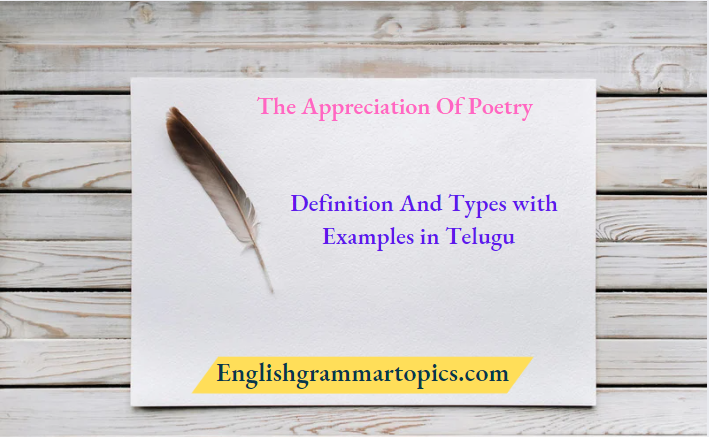
Read and Learn more Written Composition
(a) “The untrodden snow lay all bloodless on Linden, when the sun was low;
and the flow of Iser, rolling rapidly, was dark as winter.”
(b) “On Linden, when the sun was low, All bloodless lay the untrodden snow: And dark as winter was the flow Of Iser, rolling rapidly.”
భావములో మాత్రము పై రెండు passages ఒకే విధంగా ఉన్నవి. పదాలు కూడా ఒకే రకం.
(c) ఇచ్చట Campbell’s poem అయిన “Hohenlinden” ఉన్నది. No. (i) అదే మాటలు ఇచ్చట కూడా ఉపయోగింపబడ్డాయి. కాని చదివేటప్పుడు తేడా తెలుస్తుంది..
ఈ తేడాల యొక్క వివరణ ఇలా ఉంటుంది.
(1) Regular Rhythm: Rhyme ను చదివేటప్పుడు regular beat of sound వినిపిస్తుంది. అది soldiers యొక్క marching (కవాతు) వలె ఉంటుంది. Dancing చేయు నాట్యకత్తెల అడుగుల సవ్వడిలా (Foot work) ఉంటుంది. Prose విభాగంలో పాద ధ్వని లాంటిది ఉండదు. Rhyme లో కవి syllable ధ్వనులను ఒక ప్రణాలిక ప్రకారం సమాంతర దూరాలలో arrange చేస్తాడు. మొదటి line లో ఈ sound syllables ను italics print లో పెడితే ఇది అర్ధమౌతుంది. ప్రతి రెండవ syllable ధ్వనిని మొదటి దాని కంటె పెంచుకుంటూ పోవాలి. అప్పుడు rhythm చక్కగా వస్తుంది.
“On Linden when the sun was low”
Poetry లో శృతి పెరగడం తగ్గడం, అవి చక్కని విరామముల మధ్య వినబడటం ఇదంతా కూడా dance program లో ధ్వనులు పెరుగుదల తరుగుదల వలె ఒక బాణీ ప్రకారం జరుగుతుంది. దీనినే rhythm అంటారు. ఈ rhythm అనునది verse లో ప్రధానపాత్ర వహిస్తుంది.
(2) Rhyme : Stanza మొదటి మూడు lines చివర ఒకే sound ఉండవలయును. (low, snow, flow etc.) పదములకు ఒకే vowel sound ఉండి, ఒకే consonant sound తో అంతమైనపుడు rhyming sound వచ్చును.
ఉదా: keep, peep, jump, lump; hate, late, crew, few ; glide, slide మొదలైనవి. verse కు rhyming arrangement అక్కరలేదు. ఎందుకంటే సాధారణంగా verse లోనే rhyming arrangement ఉంటుంది. Rhyme కు రెండు ప్రధాన లక్షణములు ఉన్నవి. అది ఆహ్లాదకరమైన స్వరాలు కల్పించడం ద్వారా verse ను సంగీతమయం చేస్తుంది. ఈ arrangement ద్వారా verse చాలా కాలం మనగలుగుతుంది.
Stanzas కొన్ని పేజీలలోనున్న “The Daffodils” ను చూడండి. Verse ఎలా ఉంటుందో అర్ధమౌతుంది. Poem యూనిట్లుగా విభజింపబడి యుండటం, ఆ units అన్నీకూడా ఒకే form లో ఉండటం గమనించగలరు. ప్రతి unit కు ఆరు lines ఉన్నవి. మొదటి line కు మూడవ లైనుకు rhyming arrangement ఉన్నది. రెండవ దానికి 4వ దానికి same arrangement ఉన్నది. ఈ units ను stanzas అంటారు. చాలా వరకు poetry ని stanzas form లోనే రాస్తారు.
Verse ప్రధానమైనది rhythm. తరువాత rhythm మరియు stanzas కలిసి ఉండవచ్చును. ఈ నిబంధనలలో rhythrn చాలా అవసరం. Verse లేక poetry గాని rhythm లేకుండా ఉండదు. చాలా poems విషయంలో rhyme మరియు stanza forms ఉన్నప్పటికి, ఇవి poetry కి తప్పని సరిగా అవసరం అని చెప్పడానికి వీలులేదు. చాలా poems blank verse form లో రాయబడినవి ఉన్నవి. ఈ blank verse లో ప్రతి line లో పది syllables ఉంటాయి. కాని వాటికి చివర rhymes ఉండవు.
ఇంతవరకు మనం verse కు poetry ఉన్న సంబంధాలను గురించి తెలుసుకున్నాం. అసలు poetry అంటే ఏమిటో ఇప్పుడు తెలుసుకుందాం :-
(1) Music – Poetry లో ప్రధానమైనది verbal music. Poet స్వతహాగా ఆహ్లాదకరమైన ధ్వనులను ఇచ్చే పదాలను select చేసుకుంటాడు. మాటలను ఒకదాని పక్కన ఒకటి అమరిక చేయునపుడు వాని శృతిలో (sound) పరస్పర ఏకత్వం ఉండునట్లు చూసుకుంటాడు. దీనినే word music అంటారు. కధా వస్తువునకు (subject) సమతూకంగా ఉండేటట్లు ఈ word music ను సరిదిద్దుకుంటాడు. ఈ musical sound కు కధావస్తువు యొక్క భావానికి ఇలా సమతూకం ఏర్పడుతుంది. ఈ సమతూకం వలన poet యొక్క భావం మనకు బాగా అవగాహన అవుతుంది.
Verbal music అనేది కేవలం words యొక్క musical sound పైననే కాక rhythm (పద ధ్వనుల అమరిక పైన కూడా ఆధారపడుతుంది. చక్కని పదాల తియ్యని స్వరాలు ఆహ్లాదకరమైన rhythm కలిపి poetry కి music ను అందించును. ఇచ్చట Dryden రాసిన “Song for St. Cecilia’s Day” అనే poem నుండి రెండు verses ఉన్నవి. First verse లోని rapid rhythm అచట వివరించిన war alarm ను చక్కగా చూపించినది. రెండవ line లోని ప్రశాంతమైన rhythm అచట ఉన్న ఆహ్లాదకరమైన soft music కు
సరిపోయింది.
“The trumpet’s loud clangour
Excites us to arms,
With shrill notes of anger,
And mortal alarms.
The double double double beat
Of the thundering drum
Cries, Hark! the foes come;
Charge, charge, ’tis too late to retreat
The soft complaining flute,
In dying notes, discovers
The woes of hopeless lovers,
Whose dirge is whisper’d by the warbling lute.”
ఇచ్చట poets తమ music effects ఎలా సాధిస్తారు అనే విషయం పరిశీలిద్దాం:
(a) Rhyme : పదాలు ఒక దానికొకటి కలిసి సంయుక్తంగా rhyme చేసినపుడు musical sound వస్తుంది. ఇందువలననే poetry లో rhyming ను విస్తృతంగా వాడతారు. ఈ verse లో ఉన్న rhyme ను చూడండి
“Strew on her roses, roses,
And never a spray of yew,
In quiet she reposes:
Ah I would that I did too!”
(M. Arnold)
Internal rhymes (అనగా ఒకే line లో rhyming effect ను సృష్టించుట) ఇవి కూడా చక్కని musical
effect ను సృష్టించును.
‘The ice was here, the ice was there,
The ice was all around:
It cracked and growled, and roared and howled.
Like noises in a swound !”
(Coleridge)
(b) Vowel and Consonant Sounds : Open vowels మరియు soft consonant ను కలిగియున్న words (like_i, m, n, v, w z etc., ) చక్కని, మృదువైన మరియు ఆహ్లాదకరమైన music ను సృష్టించును.
“Season of mists and mellow fruitfulness.”
‘Then in a wailful choir the small gnats mourn.” “To dream and dream, like yonder amber light.”. “The murmurous haunt of flies on summer eves.”
(Keats) (Keats)
(Tennyson) (Keats)
(c) Onomatopoeia – ఒక పదము యొక్క sound నేరుగా అర్థాన్ని ఇచ్చునపుడు, అట్టి figure of speech ని ఈ పేరుతో పిలుస్తారు.
e.g., roar, bang, crash, clap, bump, bubble, screen, pop, moan, hum, murmur etc., Poet శబ్దముల గురించి మాట్లాడేటప్పుడు సందర్భాన్నిబట్టి ఆయా పదాలను ఉపయోగిస్తాడు. ఉదాహరణకు :-
The moan of doves in immemorial elms
And murmuring of innumerable bees.”
(Tennyson)
పైన ఇవ్వబడిన poem పావురాల కుహకుహులు, తుమ్మెదల జుంకారాలు వినిపిస్తుంది కదా? සුයි ఎలా సాధ్యం? Onomatopoeia శబ్దాలైన moan, murmur వలన సాధ్యమయ్యింది. consonants అయిన ‘m’ మరియు ‘n’ శబ్దాల (e.g.. immemorial, innumerable) వలన ఇంకా వినసొంపుగా ఉంది.
(d) Alliteration – ఇది ఇంకొక రకం figure of speech. దీనిని poetry లో వాడతారు. ఇది ఒకే consonant తో ప్రారంభమయ్యే రెండు పదాలను ఒకే చోటికి చేర్చుతుంది.
“The fair breeze below, the white foam flew (Coleridge)
The furrow followed free.”
ఇచ్చట ‘ f’ sound గాలివీచే sound కు చక్కని పోలిక ఉంది.
“I hear lake water lapping with tow sounds by the shore.” (Yeats)
ఉదాహరణకు :
ఇచ్చట ‘I’ sounds మరియు ‘sh’ sounds అచ్చటి చిన్న చిన్న అల శబ్దాలకు సరిపోవుచున్నవి.
A reeling road. a rolling road, that rambles round the shire.” (Chesterton)
ఇచ్చట ‘ ‘ sound అచ్చటను పొడవాటి రోడ్డున వర్ణించడానికి ఉపయోగపడింది.
(e) Repetition- కొన్ని phrases ను గాని కొన్ని పదాలనుగాని repeat చెయ్యడంవలన భావాన్ని విపులీకరించడానికే కాక musical ప్రభావాన్ని కూడా పెంపొందించును.
“The woods decay, the woods decay and, fall.” (Tennyson)
“What hope of answer, or redress?
Behind the veil, behind the veil..” (Tennyson)
“A wearytime! A weary time !
How glazed each weary eye !” (Coleridge)
“In ever climbing up a climbing wave”.
“The western tide crept up along the sand. (Tennyson)
And o’er and o’er the sand.”
And round and round the sand.” (Kingsley)
(f) Refrains – Refrain కూడా ఒక విధమైన repetition అవుతుంది. కొన్ని verses లో ఒక line ను A line లోని భాగాన్ని గాని మరల repeat చెయ్యడం జరుగుతుంది. దీనిని burden or refrain అంటారు.
(2) Vision. (దృక్పథము) Poetry లో రెండవ ప్రాధాన్యత కలిగినటు వంటిది. గొప్ప కవికి తన దృష్టిని బహుదూరము సారించగల శక్తి ఉంటుంది. సత్యాన్ని అతడు తీవ్రంగా అన్వేషించి గమనించగలడు. ఆధ్యాత్మికమైన దృష్టి అతని ఆలోచనలో ఉంటుంది. మామూలు వ్యక్తులు బాహ్యప్రపంచాన్ని తమ పంచేంద్రియములతో గమనించగలరు. పంచేంద్రియములకు అతీతమైన భావాలను వారు గ్రహించలేరు. కాని కవులు తమ అంతర్మథన శక్తి ద్వారా కనిపించే దృశ్యాలకు అవతల ఉన్న అనేక సత్యాలను గ్రహించగలరు. అనేక విషయాలను వారు తమ సూక్ష్మదృష్టితో గ్రహించగలరు. ఉన్నతశ్రేణికి చెందిన కవిత్వము యావత్తూ కూడా, కవి యొక్క ఊహాజనితమే. Wordsworth సృజనాత్మకత లేని వ్యక్తిని గురించి ఒక పద్యం రాశారు. అతని పేరు Peter Bell. తన కంటికి కనిపించునది తప్ప ఇంక దేనినీ చూడలేదు అని ఇచ్చట భావము. అతనికి ఒక దృక్పథము అంటూ ఏమీలేదు.
“A primrose by a river’s brim
A yellow primrose’ was to him,
And it was nothing more.”
Primrose అనునది ఒక ఎడారి పూవు. దానిని గురించి Wordsworth గారు ఇలా రాశారు:
To me the meanest flower that blows can give
Thoughts that do often lie too deep for tears.
Poet వాస్తవానికి వ్యక్తిత్వాన్ని ఇస్తాడు. మామూలు సంఘటనలను, వస్తువులను మనం పరిశీలనా దృష్టితో చూడడానికి అతను మనకు తోడ్పడతారు. ఒక వాక్యాన్ని చూడండి :
“Apparelled in celestial light, the glory and the freshness of a dream.”
గొప్ప కవులు రాసిన poetry లో ఒక సందేశము ఉంటుంది. ఆ కవిత్వములో చెప్పిన దాని కంటే ఎంతో దానిలో దాగి ఉంటుంది. ఒకటి రెండు సార్లు చదివితే గాని దానిలోతు మనకు అంతుపట్టదు.
(3) Imagery : ఊహాజనితమైన చిత్రాలను మనం images అని అంటాము. నేర్పుగా పదాలను వాడినపుడు దీనిని imagery అని అంటాము. కంటికి కనిపించని భావాలను కవి కంటికి కనిపించునట్లు poetry లో చూపగలడు. ఇది అతని ఊహాశక్తికి నిదర్శనం. వచన కావ్యముకంటే, poetry ఈ పాత్రను గొప్పగా పోషించగలదు. Poetry కేవలం మాటలతోనే కాకుండా pictures తో మాట్లాడుతుంది. Poet యొక్క pictures వాస్తవ ప్రపంచం నుండి మనస్సులో గీసిన చిత్రాలు. మానసికమైన ఊహాచిత్రాలను మూడు విధాలుగా చిత్రిస్తాడు.
(a) By Description (వర్ణన ద్వారా): ఇతర prose writers వలెనే కవికూడా తన వర్ణనను మాటలతోనే చేస్తాడు. ఇచట Gray గారు రచించిన ఒక వర్ణన చూడండి:
‘The curfew tolls the knell of parting day.
The lowing herd wind slowly o’er the lea, The ploughman homeward plods his weary way. And leaves the world to darkness and to me. Now fades the glimmering landscape on the sight, And all the air a solemn stillness holds. Save where the beetle wheels his droning flight,
And drowsy tinklings lull the distant folds.”
(పద ప్రయోగములతో చేసిన వర్ణనల కొరకు ఈ క్రింది poem చూడండి. “The Sands of Dee” (2nd verse); “Hohenlinden”, “Rain in Summer.”)
(b) By certain Figures of Speech such as simile, metaphor, and personification about which you have learnt in Chapter 29. మీరు చదివినట్లుగా figures of speech కి చెందిన simile, metaphor మరియు personification అను వర్ణనలపైన గూడా poetry తన భావోన్నతికి ఆధారపడుతుంది. Poet ఎప్పుడు కూడా ఒక దానిని పోల్చిచెప్పడానికి ఇంకొక దానిపై ఆధారపడతాడు. ఇచ్చట image ని (ఊహాచిత్రాన్ని) ఆధారంగా తీసుకుంటాడు.
(c) By Picturesque Epithets. కవి మనస్సులో ఒక కీలక పదం ద్వారా గాని, phrase ద్వారాగాని, తన ఊహాచిత్రాన్ని నిర్మిస్తాడు. ఇచ్చటనున్న adjective epithets ను చూడండి. (సార్ధక నామము) :
“All in a hot and copper sky,
The bloody sun, at noon.” (Coleridge)
పై రెండు lines లో ఉన్న రెండు epithets ఆకాశము యొక్క colour ను ఎంత చక్కగా వర్ణించినవి ! (4) Emotion. (ఉద్వేగము) : Emotion అనునది poetry కి ప్రధానంగా కావలసిన మూడవ అంశము. Prose రచనలో ఎక్కువ భాగము మెదడుకు సంబంధించిన వాటిలో కేంద్రీకరించి ఉంటుంది. Poetry హృదయంపై కేంద్రీకరించి ఉంటుంది. ఇది prose కు, poetry కు ఉన్న తేడా. కావున poetry ఉద్వేగాన్ని అనగా భావోద్వేగాన్ని హృదయంలో పెంపొందిస్తుంది. ఈ క్రింది lines ఉద్వేగం లేకుండా ఎవరు చదవగలరో
చూడండి
“And the stately ships go on
To their haven under the hill;
But O for the touch of a vanish’d hand,
And the sound of a voice that is still!” (Tennyson)
కాని ఉద్వేగమే ఉద్వేగాన్ని పెంపొందిస్తుంది. కవిత్వాన్ని అల్లేటప్పుడు కవి యొక్క భావనా ప్రపంచంలో ఏ మాత్రం ఉద్వేగం రాకపోయినా కవిత్వంలో ఉద్వేగం ఉండదు. కావున పాఠకులలో కూడా చలనం ఉండదు. సంక్షిప్తంగా చెప్పాలంటే, poetry కా ప్రధానంగా కావలసినవి music (భావయుక్తమైన సంగీతము) vision (ఒక దృక్పధము), emotion (ఉద్వేగము). కావున poetry తన imagination (ఊహాశక్తి) నుండి ఉద్భవిస్తుంది; ఉద్వేగంతో ఉవ్వెత్తున పైకి లేస్తుంది. ఒక సంగీత పరమైన మాటల సమ్మేళనంతో తన భావాన్ని వెలిబుచ్చుతుంది. Poetry కి అమాంతం మనం పూర్తి నిర్వచనాన్ని ఇవ్వలేము. దాని ప్రధాన లక్షణాలేమిటో వానిని మాత్రం
వివరించగలం.
Wordsworth గారు రచించిన “Daffodils” ను ఇచ్చట పరిశీలిద్దాం: I wandered lonely as a cloud
That floats on high o’er vales and hills,
-When all at once | saw a crowd,
A host of golden daffodils. Beside the lake, beneath the trees, Fluttering and dancing in the breeze. Continuous as the stars that shine
And twinkle on the milky way. They stretched in never-ending line Along the margin of a bay: Ten thousand saw I at a glance
Tossing their heads in sprightly dance. The waves beside them danced, but they Outdid the sparkling waves in glee;
A Poet could not but be gay
In such a jocund company!
I gazed – and gazed-but little thought
What wealth the show to me had brought.
For oft when on my couch I lie
In vacant or in pensive mood,
They flash upon that inward eye
Which is the bliss of solitude;
And then my heart with pleasure fills,
And dances with the daffodils.
Appreciation Of The Poem
(పద్య రచన యొక్క అవగాహన)
(1) Substance. మొదట పద్యాన్ని పూర్తిగా చదవాలి. తరువాత మనలను మనం ఈ విధంగా ప్రశ్నించుకోవాలి. ఇదంతా ఏమిటి? ప్రధానాంశం ఏమిటి? కవి ఏమి చెబుతున్నాడు?
ఒక రోజు కవి ఒక సరస్సు పక్కగా నడుస్తూ ఉంటాడు. వసంత ఋతువు. చల్లనిగాలి ఆహ్లాదకరంగా వీచుచున్నది. ఒక దృశ్యాన్ని చూస్తాడు. దాని అందం అతనిని ఆనందంతో ముంచెత్తుతుంది. హృదయం ఉప్పొంగి పోతుంది. కొన్ని వేల daffodils పుష్పాలు అతని మనోనేత్రాన్ని తెరుస్తాయి. పక్కనే చెఱుక్కుమని సరస్సులోని నీరు పరుగెత్తుతూ ఉంటుంది. దీనిని కవి “Fluttering and dancing” గా వర్ణిస్తాడు. Fluttering అనగా యిచ్చట రెపరెపలాడుట. అతను సంతోషంలో మునిగిపోతాడు. కాని ఆ సమయంలో అతనికి ఇతంతా తన జీవితానికి భాగస్వామ్యం అని తోచదు. తరువాత చాలా సార్లు ఈ దృశ్యం పదేపదే అతని మనోనేత్రం ముందు సాక్షాత్కరిస్తుంది. అతన్ని తన్మయత్వం చేస్తుంది.
(2) Language. ఈ daffodils poem చాలా simple భాషలో ఉంటుంది. పదగాంభీర్యం ఏమీ లేదు. Daffodils యొక్క Lilly జాతి మొక్కకు చెందినది. ఈ మొక్కలు బ్రిటన్ లోని చిట్టడవులలో పెరుగుతాయి.
(3) Imagery.
(a) మొదటి మూడు పద్యాలలో అనంతమైన daffodils సరస్సు పక్కన నేలపై పరిచినట్లు ఉన్న దృశ్యం వస్తుంది. సూర్యకిరణాలు వాని పైబడి అవి మిణుక్కు మిణుక్కు మని మెరుస్తూ ఉంటాయి. మొక్కలు గాలికి ఊగుతూ సూర్యకాంతిలో మెరుస్తూ నాట్యం చేస్తున్నట్లుగా ఉంటుంది.
(b) ఇచ్చట రెండు similes ఉన్నవి. Simily (simile అనగా ఉపమానాలంకారము) ఒంటరిగా ఉన్న మబ్బు, ఏకాంతముగానున్న కవి, మొదటి దశ. అనంతముగా కంటి చూపు ఆనినంత వరకు నేలపై పరచినట్లుగా ఉన్న daffodils దృశ్యము మరియు ఆకాశమంతా నిండిన అనంతకోటి నక్షత్రాల సమూహము రెండవ దశ. ఈ వర్ణన రెండవ పద్యములో ఉంటుంది..
(c) అదే రెండు, మూడు పద్యములలో personification (ఒక అచేతనమైన వస్తువును person గా గుర్తించి చెప్పుట) భావము కూడా ఉన్నది. ఇచ్చట daffodil పుష్పాలు ఆనందోత్సాహముతో తలలు ఆడిస్తూ మనుష్యులలాగా ఊగిపోవుచున్నవి అని అర్థం.
ఒకే సారి పదివేల పుష్పాలను చూశాను అంటాడు కవి. దీనిని English లో hyperbole అంటారు. ఇది కవి వర్ణణాంశంలో సహజంగా ఉండే అతిశయోక్తి. దానిని సారస్వతంగా తీసుకోవడానికి వీలులేదు.
(4) Sound effects
(a) మొదటి stanza లోని 6వ line లోని సత్వర భావానికి (quickness) దానికి ముందున్న lines లోని ప్రశాంతతకు ఉన్న తేడా ఎంతో poetic భావాన్ని ఇస్తుంది.
(b) నాలుగవ stanza లోని 6వ line లో alliteration భావము ప్రస్ఫుటంగా కనిపిస్తుంది. Alliteration అనగా రెండు పదములలోని మొదటి అక్షరములు అదే శబ్ధమును వినిపించుట. Ex. “And dances with the daffodils”. 3వ stanza లో 5వ line లో గూడా ఇదే భావం ఉండడాన్ని గమనించండి. Ex. “I gazed- and gazed’ ఇచ్చట కవి ఎంత సేపు అచ్చట నిలబడి తన్మయత్వం చెందినది మనకు indirect గా తెలియుచున్నది.
(5) Striking lines. Striking lines అనగా భావాన్ని కొట్టవచ్చినట్లు మనముందు పెట్టు lines అని అర్థం. మొదటి stanza లో 3, 4 lines ఈ భావాన్ని మనకు అందిస్తున్నవి. Inward eye (అనగా అంతర్గత మనో నేత్రము) మనకు ఒక mental picture ను అందించుచున్నది. ఇటువంటి mind pictures (మానసిక చిత్రములు) మనము ఒంటరిగా ఉండి చదువుచున్నపుడు ఎంతో ఆనందాన్ని ఇవ్వగలవు.
“The Daffodils” కు ఇచ్చట మనము ఒక సుదీర్ఘమైన అవగాహన ఇచ్చినాము. ఒక poem ఎలా పరిశీలనా దృష్టితో చదవాలో ఎలా రసాస్వాదాన్ని అనుభవించాలో ఇచ్చట మనకు చక్కగా బోధపడుతుంది. కాని high school level లో ఇంత విపులీకరణ అవసరం లేదు. ఒక విద్యార్థికి ఎంత అర్థం అయిందో తెలుసుకోవడానికి ఈ క్రింది ప్రశ్నలు చాలును :
(a) Poem యొక్క ప్రధాన భావము ఏమిటి?
(b) ప్రకృతిపైన, జీవితముపైన poet అభిప్రాయాలు ఎట్టివి?
(c) ఈ కొన్ని lines యొక్క భావము (annotation) ఏమిటి?
(d) Sound effects ఎలా కవి చిత్రించాడు (పదముల శబ్ద కలయిక)
(e) ఏవిధమైన figures of speech కవి ప్రయోగించినాడు?
(f) పై వానిని ఎలా వివరించాలి?
(g) మీరేమైనా ప్రత్యామ్నాయ title ను ఇవ్వగలరా? (alternative title)
Specimens (నమూనాలు)
Here are two short poems with certain questions on appreciation given below each of them and the answers worked out.
(a) She dwelt among the untrodden ways
Beside the springs of Dove;
A maid whom there were none to praise And very few to love.
A violet by a mossy stone
Half-hidden from the eye!
Fair as a star, when only one
Is shining in the sky.
She lived unknown, and few could know When Lucy ceased to be;
But she in her grave, and, oh,
The difference to me
W. Wordsworth
ప్రశ్నలు
1. Give a suitable title to the poem.
2. Name and explain the figure of speech used in the second stanza.
3. Which lines in the poem show intense feeling? What feeling has the poet expressed in these lines?
4. What do you think of the language used in the poem?
సమాధానములు
1.’The Lost Love” or “She Dwelt Among the Untrodden Ways.”
2. The figure of speech is simile. The girl is compared to the half hidden violet and the lonely star to emphsise (a) her solitude and obscurity, and (b) her beauty of soul as well as body.
3. The last two lines. They express the feeling of love and bereavement.
4. The most striking feature of the language is its simplicity. The poet has used simple, everyday words, mostly of one syllable; yet they produce a poem that has a magic charm.
(b) Laugh and be merry, better the world with a song.
Better the world with a blow in the teeth of a wrong.
Laugh, for the time is brief, a thread the length of a span.
Laugh and be proud to belong to the old proud pageant of man.
Laugh and be merry: remember, in olden time,
God made Heaven and Earth for joy. He look in a rhyme,
Made them, and filled them with the strong red wine of His mirth. The splendid joy of the stars; the joy of the earth.
So we must laugh and drink from the deep blue cup of the sky. Join the jubilant song of the great stars sweeping by, Laugh, and battle, and work, and drink of the wine outpoured
In the dear green earth, the sign of the joy of the Lord.
Laugh and be merry together, like brothers akin,
Guesting awhile in the rooms of a beautiful inn,
Glad till the dancing stops, and the lilt of the music ends.
Laugh till the game is played: and be you merry, my friends.
John Masefield
ప్రశ్నలు
1. What is the central idea of the poem ?
2. What is the “blow” with which the poet wants us to better the world?.
3. Quote three striking examples of metaphors used in the poem.
4. Explain: (a) “the old proud pageant of man.”
(b) “Guesting while in the rooms of a beautiful inn.”
సమాధానములు
1. Life is short and we must therefore laugh and be cheerful, and enjoy all the beauty and happiness that can be found on this earth.
2 It is our laughter and merriment that will serve as a blow and hit out boldly against wrong and injustice in the world.
3. (a) “Laugh, for the time is brief, a thread the length of a span.”
(b) “Made them and filled them with the strong red wine of His mirth”
(c) “Laugh till the game is played.”
4. (a) We are part of the spectacular progress of mankind which is marked with many glorious achievements..
(b) We should be happy and cheerful together during the short time we are in this beautiful world in the same way as brothers who are staying for a short while in a beautiful inn where there is dancing and music.
అభ్యాసము 163
ఈ క్రింది poems ను చదవండి. అచ్చట ఉన్న ప్రశ్నలకు సమాధానాలు రాయండి.
Read each of the following poems and answer the questions set below it
1. What is this life if, full of care,
We have no time to stand and stare?
No time to stand beneath the boughs And stare as long as sheep or cows.
No time to see, when woods we pass, Where squirrels hide their nuts in grass. No time to see, in broad daylight, Streams full of stars, like skies at night? No time to turn at Beauty’s glance,
And watch her feet, how they can dance?
No time to wait till her mouth can Enrich that smile her eyes began ?
A poor life this if, full of care,
We have no time to stand and stare.
William Henry Davies
(a) What kind of life does the poet condemn ?
(b) What are the “stars” of which the streams are full ?
(c) Name and explain the figures of speech in lines 9-10.
(d) Explain: “No time to wait till her mouth can
Enrich that smile her eyes began”.
2. My days among the Dead are past;
Around me I behold,
Wherever these casual eyes are cast, The mighty minds of old;
My never-failing friends are they,
With whom I converse day by day:
With them I take delight in weal And seek relief in woe;
And while I understand and feel How much to them I owe,
My cheeks have often been bedew’d
With tears of thoughtful gratitude.
– Robert Southey
(a) What is the central idea of the poem ?
(b) Who are the “mighty minds” ?
(c) Who are the poet’s friends and how are they never-failing?
(d) Explain: My cheeks have often been bedew’d
With tears of thoughtful gratitude.”
3. We scatter seeds with careless hand-
And dream we ne’er shall see them more:
But for a thousand years
Their fruit appears
In weeds that mar the land,
Or healthful store.
The deeds we do-the words we say
Into still air they seem to float;
We count them ever past-
But they shall last,
In the dread judgement, they
And we shall meet I
(a) What is the central idea of the poem ?
(b) Explain the imagery of the first stanza.
(c) Show how wrong we are about the consequences of our words and our deeds.
(d) Explain: “In the dread judgement, they
And we shall meet.”
4. Oh, sweet content, that turns the labourer’s sweat
To tears of joy, and shines the roughest face;
How often have I sought you high and low And found you still in some quiet place;
Here in my room, when full of happy dreams
With no life heard beyond that merry sound
Of moths that on my lighted ceiling kiss
Their shadows as they dance and dance around;
Or in a garden, on a summer’s night
When I have seen the dark and solemn air
Blink with the blind bat’s wings, and heaven’s bright face Twitch with the stars that shine in thousands there.
(a) Where does the poet seek sweet content? Where does he find it?
(b) What striking word-pictures are contained in the poem ?
(c) Name and explain the figures of speech in the last two lines.
(d) Give a suitable title to the poem.
5. Much have I travell’d in the realms of gold
And many goodly states and kingdoms seen;
Round many western islands have I been
Which bards in fealty to Apollo hold.
Oft of one wide expanse had I been told.
That deep-brow’d Homer ruled as his demesne; Yet did I never breathe its pure serene Till I heard Chapman speak out loud and boid;
Then felt I like some watcher of the skies
When a new planet swims into his ken;
Or like stout Cortez, when with eagle eyes He stared at the Pacific- and all his men Look’d at each other with a wild surmise Silent, upon a peak in Darien.
(a) What idea is expressed in the first four lines of the sonnet?
(b) Explain the significance of the phrase “deep-browed Homer”.
(c) What striking pictures are presented in the last six lines of the poem ?
(d) Quote the line which you think produces the greatest musical effect.
(e) Explain: “pure serene”; “eagle eyes”; “wild surmise”.
– John Keats
6. Strew on her roses, roses,
And never a spray of yew.!
In quiet she reposes;
Ah, would that I did too;
Her mirth the world required;
She bathed it in smiles of glee But her heart was tired, tired, And now they let her be.
Her life was turning, turning,
In mazes of heat and sound.
But for peace her soul was yearning, And now peace laps her round,
Her cabin’d, ample spirit,
It flutter’d and fail’d for breath.
To-night it doth inherit
The vasty hall of death.
(a) Does the poet show any grief at the person’s death? What exactly are his feelings on the occasion ?
(b) Quote examples of repetition from the poem.
(c) What do you gather about the life of the dead person from the poem ? (d) Explain :
(1) “Her cabin’d, simple spirit,
It flutter’d and fail’d for breath,”
(2) “To-night it doth inherit
The vasty hall of death.”
7. Books! ’tis a dull and endless strife:
Come, hear the woodland linnet,
How sweet his music ! on my life blog
There’s more of wisdom in it.
And hark! how blithe the throstle sings,
He too is no mean preacher:
Come forth into the light of things,
Let Nature be your teacher…
Enough of Science and of Art;
Come forth, and bring with you a heart
That watches and receives.
S.S.C. Examination
(a) Name and explain the figure of speech in the sixth line.
(b) What feelings does the poet seek to awaken in you by the following exclamations? “Books!””hark!”
(c) What kind of teaching does Nature give?
(d) Explain “the light of things”; “a heart that watches and receives”.
8. They tell us of an Indian tree.
Which, howsoe’er the sun and the sky May tempt its boughs to wander free And shoot and blossom wide and high Far better loves to bend its arms Downwards again to that dear earth, From which the life that fills and warms,
Its grateful being first had birth.
Tis thus, though wooed by flattering friends
And fed with fame (if fame it be).
This heart, my own dear mother, bends
With love’s true instinct back to thee.
(a) Name the figures of speech in the second and third lines.
(b) Why is the tree considered “grateful”?
(c) In what respect is the poet like the tree?
(d) Explain: “Wooed by flattering friends”; “Shoot and blossom wide and high.”
-S.S.C. Examination.

